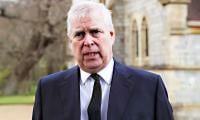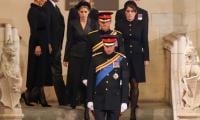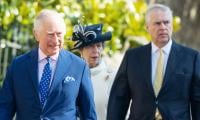Imran fights for control of nuclear Pakistan: WSJ
NEW YORK: One of the world’s most consequential political dramas is playing out largely unnoticed in America. The stability of Pakistan, a nuclear-armed nation of 230 million, rests on a duel between the country’s most popular politician and the head of its most powerful institution. Can army chief Gen Asim Munir stop former prime minister Imran Khan from reclaiming power?
According to a the Wall Street Journal; US journal, Mr Khan is beloved in Pakistan. He led a recent Gallup Pakistan poll with 61 percent approval, 25 points ahead of his two closest rivals. Yet his recklessness, impractical ideas and poor administrative skills risk unraveling a nation reeling from floods, terrorism and looming bankruptcy.
The 70-year-old former prime minister’s determination to stage a comeback a year after Parliament ejected him from office poses a dilemma for Washington, too. Mr Khan’s authoritarian streak, sympathy for radical Islam, and hostility towards America place him in the mold of former Egyptian President Mohamed Morsi and Turkey’s Recep Tayyip Erdogan. A second Khan government would likely make the country’s domestic problems worse and erode its relations with the US.
Mr Khan has a real shot at a comeback. He has genuine political strengths, including a reputation for probity, an ability to rouse both the masses and the middle class, and a tenacity that transformed Pakistan Tehreek-e-Insaf, or PTI, from a one-man band to the country’s leading political party.
At the heart of Mr Khan’s populist appeal lies a reputation for leadership earned on the cricket field. For over two decades, Mr. Khan occupied a position at the pinnacle of the sport. In 1992 he led a ragtag underdog team to Pakistan’s greatest sporting achievement—a World Cup victory in Australia. As Mr Khan’s supporters see it, the charismatic leadership skills that transformed the national cricket team could also transform the nation.
Mr Khan also offers a story of religious redemption. As a young playboy, he frequented London nightclubs and posed for photos in a bathrobe in a bachelor pad bedecked with tiger posters. His critics see his pious turn—and frequent criticism of Western culture—as hypocrisy. But in a deeply religious nation, the public transformation plays well. As his fans see it, Mr. Khan—educated at Oxford and once married to the British heiress Jemima Goldsmith—could easily have lived a life of comfort in the West. Instead, he chose the squalor of Pakistan, where he built a first-rate cancer hospital in memory of his mother and launched the PTI in 1996 to fight corruption in public life.
“Imagine if Michael Jordan was also America’s most famous philanthropist, and became president after founding a new party,” says Taimur Malik, a lawyer for PTI, in a phone interview from Lahore. “That’s how Pakistanis feel about Imran Khan.”
Mr Khan’s party finished second in 2013 elections by vote share and eventually won in 2018 with an assist from the army, which reportedly hounded Mr. Khan’s opponents and helped him cobble together a coalition. But three years into his term Mr. Khan fell out with Gen. Qamar Bajwa, then army chief, over the appointment of a new general to head the army’s Inter-Services Intelligence, which has long meddled in domestic politics. A few months later, Mr Khan’s government collapsed in a vote of no confidence.
The army has ruled Pakistan directly for almost half of the nation’s 75 years of existence and indirectly for most of the rest. Usually a politician who falls out of favor ends up dead or in exile. Mr. Khan claims—without evidence—that top generals and ruling party leaders were behind a failed November assassination attempt. The army and the accused politicians deny this charge, but instead of fading away, Mr Khan has taken the battle to the new army chief, Gen Munir.
In January, Mr Khan ordered his party’s provincial governments in Punjab and Khyber-Pakhtunkhwa to resign, apparently in a bid to force an early national election. Mr. Khan has castigated the army chief in interviews with foreign journalists, and his supporters have flooded social media with attacks on the army. In about a year, Pakistan has gone from being a country where even the most senior journalists chose their words about the military carefully to one where PTI supporters openly cast aspersions on a serving army chief.
Mr Khan’s popularity has helped him rewrite the rules of Pakistani politics, and unlike previous leaders cast out by the army, he appears to enjoy support among serving and retired officers. In addition, the courts have shielded Mr. Khan by preventing the government from arresting him on a battery of charges, ranging from corruption to terrorism. He denies all the accusations against him.
But Mr Khan’s brinkmanship reinforces the argument that he’s too reckless to be trusted again with power. With an election likely by October, for the army chief the dilemma couldn’t be starker. “As an old Pakistani saying goes, there’s only one grave but two candidates,” says Uzair Younus, an Atlantic Council Pakistan expert in a phone interview. “Imran Khan has ensured that it will either be him or Munir who rules Pakistan.”
-
 Christopher Nolan Reveals Why He's A Fan Of 'Fast & Furious' Movies
Christopher Nolan Reveals Why He's A Fan Of 'Fast & Furious' Movies -
 Ben Affleck Unable To Accept A New Lover Post Jennifer Lopez Divorce As He Still Grieves End Of Bennifer 2.0
Ben Affleck Unable To Accept A New Lover Post Jennifer Lopez Divorce As He Still Grieves End Of Bennifer 2.0 -
 Why Is Demi Moore Being Called Ozempic Victim?
Why Is Demi Moore Being Called Ozempic Victim? -
 Kaley Cuoco Makes Honest Comparison Of 'Big Bang Theory' And 'Charmed' Gigs
Kaley Cuoco Makes Honest Comparison Of 'Big Bang Theory' And 'Charmed' Gigs -
 Robert Picardo Shares Surprising Reaction On Returning To The 'Star Trek' Franchise
Robert Picardo Shares Surprising Reaction On Returning To The 'Star Trek' Franchise -
 AI Feud Deepens As Musk Targets OpenAI Over Safety Concerns
AI Feud Deepens As Musk Targets OpenAI Over Safety Concerns -
 'Paranoid' Andrew Fears Assassination: 'Panic Is Spiralling'
'Paranoid' Andrew Fears Assassination: 'Panic Is Spiralling' -
 Israeli Minister Hits Back At Prince Harry
Israeli Minister Hits Back At Prince Harry -
 Thousands Of Google Accounts Could Be Misused By Hackers: Report
Thousands Of Google Accounts Could Be Misused By Hackers: Report -
 Prince Harry Ignores Question About Andrew
Prince Harry Ignores Question About Andrew -
 Ryan Gosling On What Makes 'Star Wars: Starfighter' Different From Other Franchise Films
Ryan Gosling On What Makes 'Star Wars: Starfighter' Different From Other Franchise Films -
 Rumours About 'ambitious' Savannah Guthrie Dismissed
Rumours About 'ambitious' Savannah Guthrie Dismissed -
 Aly Michalka Reveals Why She Turned Down Offer To Star In 'Hannah Montana'
Aly Michalka Reveals Why She Turned Down Offer To Star In 'Hannah Montana' -
 Harry, Meghan Join William, Kate In Distancing Themselves From Beatrice, Eugenie
Harry, Meghan Join William, Kate In Distancing Themselves From Beatrice, Eugenie -
 'View' Co-host Sara Haines Makes Rare Confession About Married Life
'View' Co-host Sara Haines Makes Rare Confession About Married Life -
 Andrew Believes King Charles 'sacrificed' Him To Protect Institution?
Andrew Believes King Charles 'sacrificed' Him To Protect Institution?



